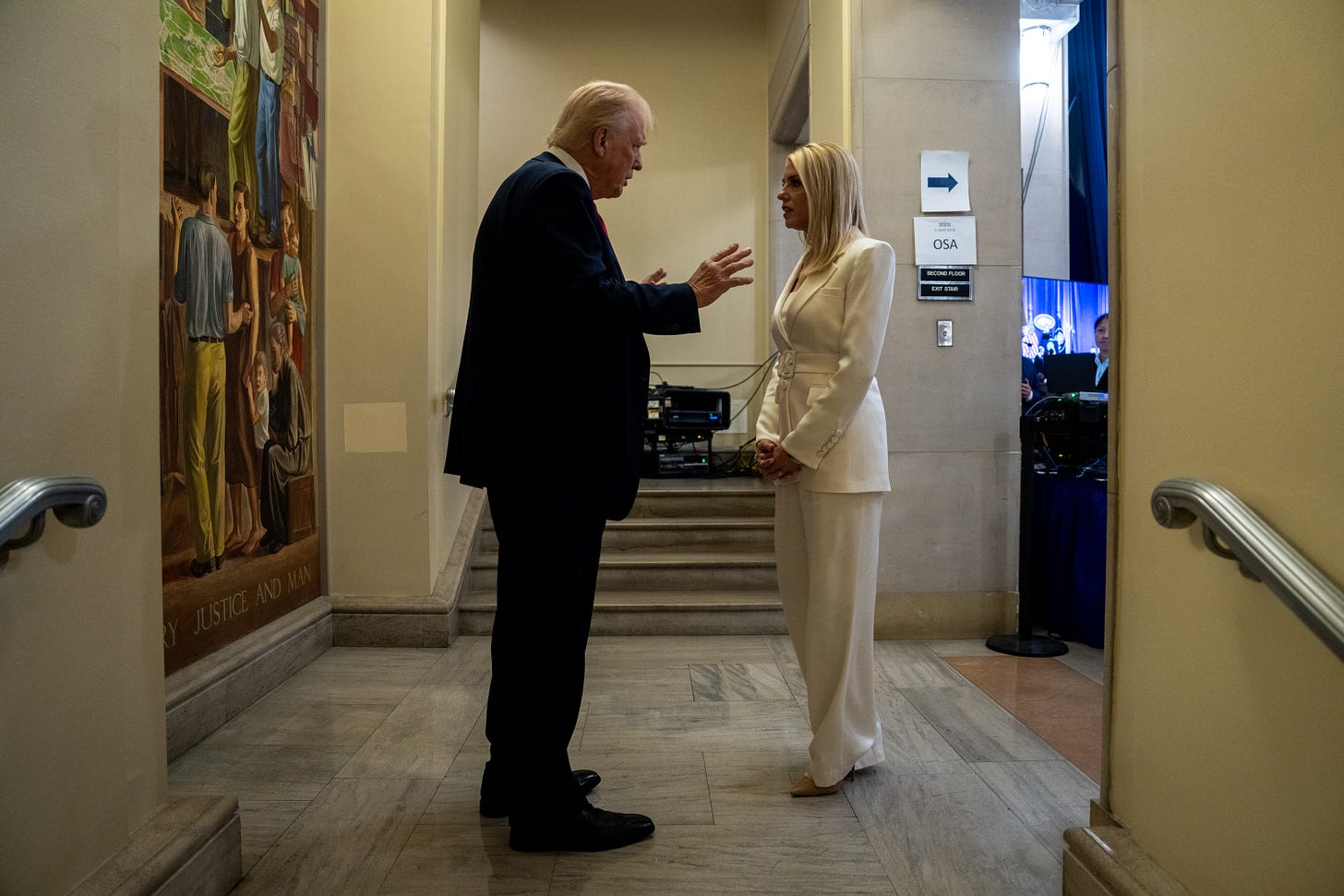Executive Functions is hiring an executive editor. See this post for details. And please click here to opt in to receive via email our Roundup—brief daily summaries of news developments and commentary related to executive power.

Donald Trump made news this weekend by professing uncertainty that he was obligated as president to uphold the Constitution: “I don’t know,” he responded to that question, and then referred the question to the “brilliant lawyers” who serve in his administration.
Among the possible readings of the answer is that he was being provocative, looking to freak out the “libs,” or that he won’t in fact commit to the expectation that as president he will uphold the Constitution. But the right interpretation might lie elsewhere. Based on what else he had to say on this subject in his interview with NBC’s Kristen Welker, this alternative reading of the remarkable “I don’t know” answer may better clarify his approach to rule of law issues.
He is a “real estate guy at heart,” as he volunteered in answering a different question: one of three separate references he made to his real estate background and expertise. In other words, he is a businessman, “not a lawyer,” he reminded Welker when stating that he did not know whether non-citizens and citizens were all entitled to constitutional due process. And in responding to a question about his responsibility in the case of Abrego Garcia, deported in error to El Salvador where he is incarcerated in a supermax facility, Trump disclaimed “involve[ment] in the legality or the illegality.” He continued, “I have lawyers to do that and that’s why I have a great DOJ.”
In this “business model” presidency, he is the national CEO who looks to make deals and get things done. He generally appreciates that he has to have lawyers—the laws have to be “100 percent adhered to”—but the law to which he adheres to this 100 percent degree is, 100 percent, what they tell him it is. He has picked the lawyers he is confident will be the can-do sort that will get him where he needs to go. “Activist judges,” he complained to Welker, get in the way. His “brilliant lawyers” are there to pave the way.
Trump stressed this same reliance on what his lawyers tell him when asked about his intention to direct revocation of Harvard’s tax exemption, in violation of the law prohibiting any such exercise of control over the Internal Revenue Service. “I’m going to just follow what the lawyers say. They say that we’re allowed to do that, and I’m all for it.”
Of course, other presidents have not been lawyers, and even those with law degrees and even experience in government or private practice depended on the sound counsel of the senior lawyers in their administrations. But presidents retain an independent constitutional responsibility for their decisions in legal matters. It is a responsibility they discharge in the choice of their senior legal team, and in the expectations they set for the quality of the advice they receive. Presidents leave constitutional legacies: In the end, these cannot be outsourced to lawyers by presidents who “just follow what the lawyers say.”
This outsourcing is especially problematic when a president has chosen the senior legal team for personal loyalty and devotion to his cause, affording him a high degree of confidence that he will be comfortable with what they have to say. Trump has declared by executive order the primacy of his view of the law throughout the executive branch, including the independent agencies. But he has no such view, beyond what legal position advances his policy agenda. The reliance he claims to place on his lawyers allows him to characterize the answer he wants to be the answer of “brilliant lawyers.”
Now, however, after more than four years as president, Donald Trump remains a “real estate guy at heart” who really does not know—and need not know—whether he must uphold the Constitution. As he told Welker when describing his plans for renovation of the White House, he “was a really good real estate developer so I know how to get things done.” Matters of legality are not his concern: “I have lawyers to do that.” And, he is sure, he has the right lawyers for the job.




